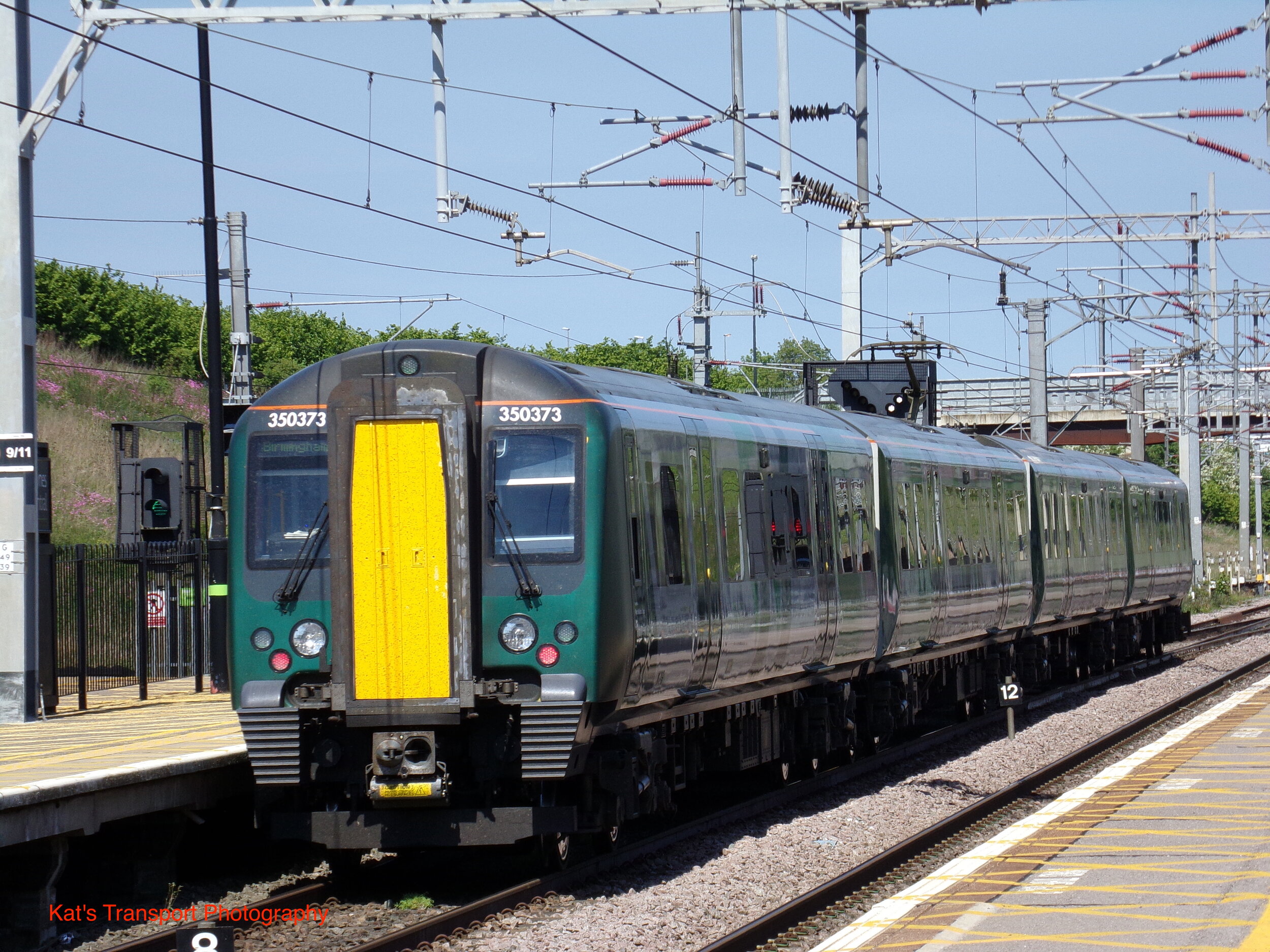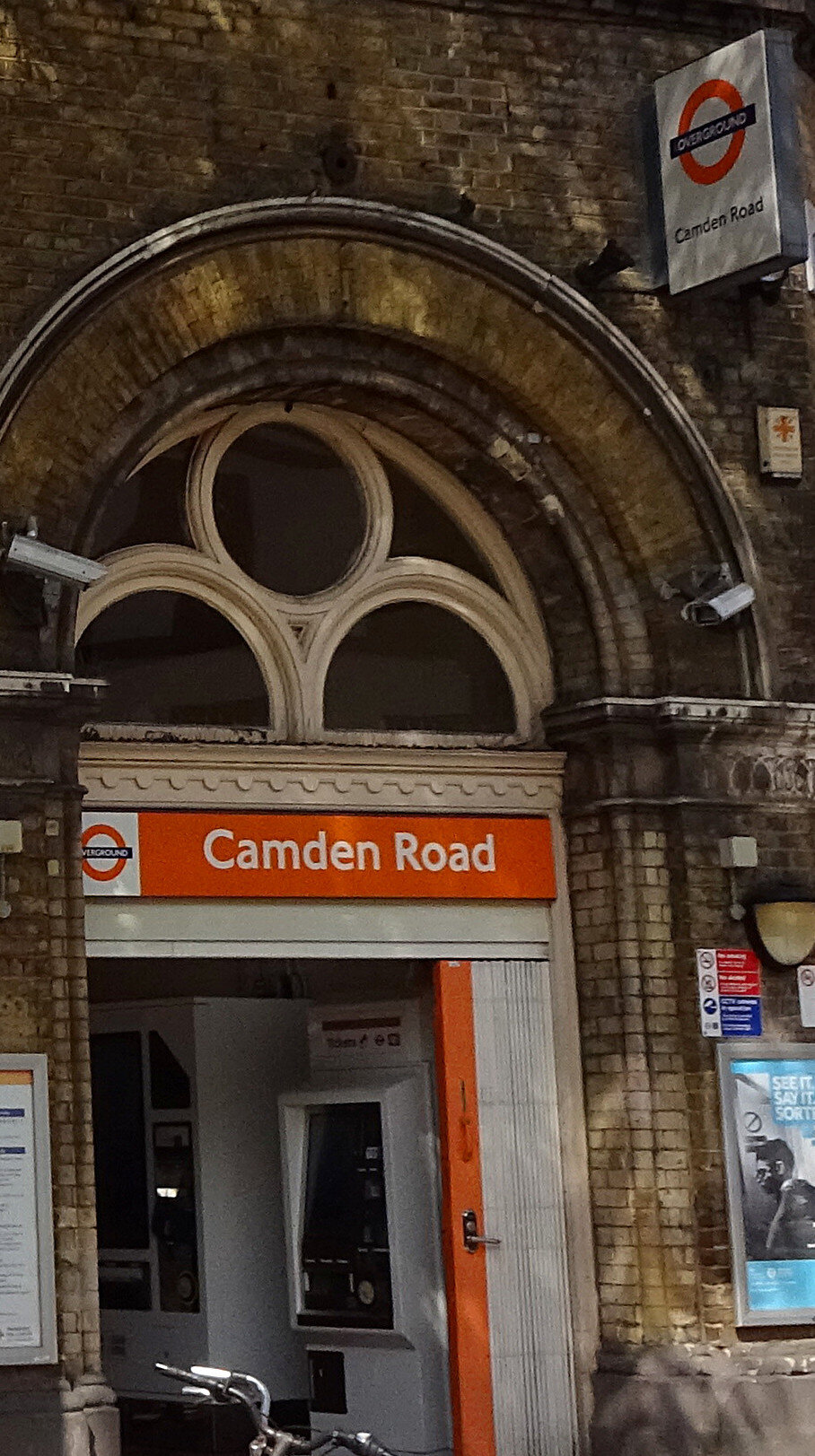The Williams Review review
As someone working in transport, I’m periodically asked my opinion on railway privatisation.
My simple answer is that nationalisation and privatisation could both work perfectly well, but a buggers’ muddle in the middle does not.
Just pick one, and make it work!
Well, we have answer: it’s nationalisation.
Nationalisation in all but name
Yes, I know that the trains will continue to be run by private firms, but from a customer perspective, it will be a nationalised network. Just as TfL customers have no idea that the Overground and DLR are run by private operators but the trams and tubes are run in-house, so it will be with Great British Railways.
My overwhelming sense on reading the report was one of relief.
It is intelligent and ambitious and appears to be aware of some of the risks associated with its policies - not always something you see in Government papers.
While we seem to be in for a period of flag wars (the Scottish Executive put a saltire on their trains a few years ago; Grant Shapps tweeted out news of the Great British Railways revolution swathed in so many Union Jacks he was barely visible behind them all), overall, the white paper is good.
Clarity
I’ll be honest; I had worried that the Guiding Mind would be given the responsibility for fares and timetables, but private operators were to continue to run their own brands; rather like the recent situation on GTR (and the current situation on the rest of the network).
That situation is deeply unsatisfactory. Customers think the operator is responsible but the operator doesn’t have either the tools nor incentives to fix things for them. I was worried that the Government would rather like being able to outsource blame and part of its purpose in retaining private operators was to act as a lightning rod.
Well, that turned out not to be true. With the entire railway operated as a single national brand (indeed, using the logo and typeface of British Rail), the public will have no doubt where the buck stops.
Nothing is risk-free
One of the things that I found particularly encouraging reading the review was the fact that the authors were already aware of some of the biggest risks in their new approach, and therefore ready to seek to mitigate them.
I wrote this week about the importance of avoiding a Network Rail cultural takeover of the new organisation. The review notes that - for obvious and good reasons - Network Rail has an engineering-led culture with little direct customer contact and says:
The government will require that Great British Railways be a new organisation, not bound by the cultures or approaches of Network Rail…
That is essential but it’s great to see that the white paper acknowledges the risk that it might not happen.
The review also notes the risk of producer capture within Great British Railways; especially given the asymmetry of the workforce. That is a risk in any public sector body, so the fact they’ve identified the risk doesn’t rule out that it could happen, but it’s a good start that they’re aware of it.
Fares and fragmentation
The report repeats the assertion that fares fragmentation is a problem to be resolved. As I’ve written previously, there’s an important nuance here.
Lots of fares doesn’t matter as long as the way these are presented to the customer is simple. TfL doesn’t have simple fares; it has simple ticketing.
Given that the report rightly talks about the need to improve ticketing (including much more use of contactless pay-as-you-go), much of the complex presentation will be eliminated.
But it’s important that GBR doesn’t throw the baby of fares designed for specific customers out with the bathwater of complexity. For example, London Northwestern Railway currently charges lower fares to Liverpool from London than Avanti West Coast. This makes sense as the slow train takes almost twice as long. Even if these trains all become Great British Railway trains with a common brand, it won’t change the fact that some people will accept a slower ride in exchange for a lower fare. Taking away that option for the sake of simplicity won’t help the customer with time but not money. What will help them is an easy to use and intuitive ticketing system so they can discover the option easily.
A slow train is a slow train
There is also ambiguity in the report on the future of fares regulation.
The implication of starting a sentence “As achieved today through regulated fares…” is that regulated fares will cease to exist. If so, it’s hugely welcome that some of the nonsense described here will disappear. But it’s not clear what will come in its place. The report promises to retain “affordable” fares, but it’s not clear who will define affordability.
While the previous system of fares regulation was a mess, it had one huge advantage. By preventing train companies from increasing fares when demand increased, it contributed considerably to the remarkable growth in passenger numbers since privatisation. Indeed, complaints about overcrowding are a double-edged sword. Yes, it’s a very poor customer experience. On the other hand, at least people have the option of making the journey. Doubling the price would solve overcrowding but by limiting customers’ opportunities to travel.
Losing the form of price regulation that ties everything back to 1995 is a good thing but it’s important that a new form of price regulation is put in its place that limits the ability of Great British Railway to price people off its railway.
Growth
Indeed, price is only one of the tools that drives growth and there is a danger that responsibility for growth is confused.
The operator is going to be rewarded for growth in their contracts (which makes sense) but fares, timetables and marketing will all sit in Great British Railways. The reforms are explicitly based on TfL’s Overground and bus contracting model, but these models don’t automatically generate growth. While London Overground has generated growth from day one, that’s been driven by continued network expansion. The London bus network has been declining for most of the last five years.
Indeed, creating the new Passenger Service Contracts so as to avoid stifling growth will be a key priority, though challenging.
The problem is that the operator is to be incentivised to achieve output targets, but some of these output targets will be compromised by growth. For example, if the operator is to be rewarded for achieving target levels of crowding or punctuality, then they may seek some kind of assurance from Great British Railways as to the environment they’ll be operating in. For example, if GBR halved all the fares, it would become harder for them to meet their crowding and punctuality obligations. As a result, simple commercial experiments (“Let’s try cutting the weekend fare from x and see what happens”) risk getting caught up in contractual treacle.
The goal of the review is to eliminate contractual fragmentation and it succeeds in eliminating some. But it creates a new contractual interface between cost and revenue that didn’t exist on the privatised railway (at least, not in conventional rail franchises), which will make working to maximise the railway’s revenue more difficult.
To give an example, let’s imagine that someone at GBR wanted to run a trial of a British version of SNCF’s child chaperone service Junior & Cie. With that product, certain trains are dedicated for young children, who can then travel unaccompanied. As a Londoner parent with a grandmother in Cornwall, I would certainly use this service if it existed in the UK.
Move faster kids!
You can also see that Junior & Cie has potential wider public policy benefits. By creating a transport service that is literally impossible for car to replicate, you may create a long-term competitive advantage for rail travel that may be disproportionate to the short-term revenue benefit.
But, of course, in the short-term, a whole load of unaccompanied children are likely to import performance risk and cost. Whereas an operator could just try it early in their franchise term and quietly can it if it doesn’t work, the contractual interface between GBR and the various regional operators will - presumably - make this more difficult as a means will need to be found to hold the operators harmless.
The White Paper is keen to eliminate delay attribution (and they quote a genuinely funny story about pheasants), but if GBR try Junior & Cie and the kids delay the train, surely the operator will seek to argue that it’s not their fault that the trains are late and they shouldn’t be penalised.
The risk is that it becomes much easier just not to try stuff.
Local trains for local people
A substantial weakness of recent years has been franchise specifications set in Whitehall and one of the potential benefits of the new world order could be that local authorities get significantly more input into their local train services. The report dangles the prospect of greater local authority involvement but says very little else. All we learn is that more details will be set out in the levelling up white paper “in due course.”
There are a lot of aspirational good words about integration between modes; all of which is very sensible. But there is an absence of clarity - at this stage - as to how it will happen in practice. Stations will be run by a national body, GBR, with the apparent primary goal being to commercialise real estate. Local buses are, through the National Bus Strategy, to be the subject of Enhanced Partnerships at a local authority level. There’s no obvious regional synergy.
While we’re waiting for “in due course” to come true, there’s a danger that GBR develops into a highly centralised operation. The white paper talks with enthusiasm about a single brand (with the famous double arrow used everywhere) and the Rail Alphabet. The irony, of course, is that the white paper also explicitly models the future on the London Overground, where the double arrow and Rail Alphabet were replaced by the roundel and New Johnston, because that made more sense for that local market. Are there other local markets where a much more localised approach would make sense? I suspect that many of the new Metro Mayors would argue that there were; but if the localism proposals don’t come out quickly, there may not be time.
Governance and accountability
The biggest challenge for this new system is one that it’s almost impossible to do anything about.
The key line is this one:
Great British Railways will be accountable to Ministers in a similar way that TfL is to the Mayor of London.
The problem is that the Secretary of State is a fundamentally different job to the Mayor of London. The Mayor is virtually a single-issue politician. They run on a policy platform that is largely transport, and then get precisely four years to deliver it. The date of the next election is known and the Mayor is going to be judged on whether they’ve achieved what they promised. So TfL has a very significant degree of political stability and total policy clarity. TfL is there to deliver the Mayor’s Transport Strategy; period.
The Secretary of State is a different beast. The average tenure of a transport secretary is about 18 months and can change at any time at the whim of the Prime Minister. Whereas the Mayor can only be fired by the voters of London (which is basically TfL’s customer base), the voters can neither hire nor fire the transport secretary. Even when General elections come along, they are not won or lost based on whether the Government fulfilled its transport manifesto. As a result, transport secretaries wouldn’t be human if they didn’t care a lot more about the PM than the customers, and most transport secretaries barely acknowledge their own manifestos.
The 2005 Labour manifesto promised an Expressway parallel to the M6, car-pool lanes on main roads and to seek consensus to introduce road pricing. High-speed rail got a lukewarm “we will look at the feasibility and affordability of a new North-South high-speed link”, yet HS2 became the defining project of that government. The 2017 Conservative manifesto didn’t say anything about structural changes to the railways, yet it was that Government that commissioned the Williams Review that is introducing the biggest upheaval for 30 years.
So, unlike TfL, GBR is going to be buffeted by constantly changing political priorities.
The same is also true of budget. In normal circumstances (i.e. not as they are now!), TfL’s budget is highly predictable as the Mayor doesn’t have multiple competing departments, nor the statutory powers to move money between them. While it’s very encouraging that the Government has committed to retain five year infrastructure budgets, the same is not true for day-to-day spending. The white paper promises that GBR will have its five-year business plan listened to, but ultimately budgets will be set through the normal departmental processes. Unlike TfL’s budget (historically, at least - who knows what the future holds), the GBR budget will always be vulnerable to a change in defence policy or the need to invest more in education. Protecting infrastructure investment is excellent, but stability of operating budget is also crucial to long-term planning.
Indeed, one of the features of the franchise system that we’ll miss has been the combination of control periods and franchise agreements meaning that levels of state support are fixed years in advance. Even if the Chancellor wanted to raid the transport budget, they couldn’t change agreed premium profiles as they were contracted. Transport has been unusual in this regard but the white paper formalises the return to the normal departmental bunfight that has been gradually taking place over recent years.
In summary, the crucial line that GBR will be accountable to Ministers “in a similar way” to TfL to the Mayor is a long way from being true because the job of a minister is very different to the job of Mayor.
Having said all that, there is some ground for short-term optimism. Grant Shapps didn’t need to put his name on the plan, so that shows a level of personal commitment. And Boris Johnson is a Prime Minister with an unusual degree of interest in transport. He also trusts Sir Peter Hendy, so the period in which this review is being implemented probably comes with a certain amount of political air cover. But it will not last forever.
In conclusion
I said at the start that, overall, I’m relieved.
And that’s true.
In part, that’s because the future promised by the white paper is better than where we are now. (To an extent, it could hardly be worse).
And because, a bit like the National Bus Strategy, the white paper was intelligently written, made sense and was trying to achieve the right policy goals. That isn’t always the case with government white papers.
And it’s because the white paper acknowledges some of the risks in its chosen path.
The optimistic view of the future is that GBR establishes its credibility with both customers and politicians, uses its moral authority to secure long-term funding and creates intelligent contracts that enable the private sector to focus on costs while the public sector focuses on customer proposition.
But it is worth flagging that this outcome is not guaranteed. As I mentioned earlier this week, there’s a reason why Apple runs its stores in-house. It’s because it recognises how important it is to be close to the customer. The white paper creates a contractual wedge between the people responsible for designing the customer proposition (i.e. the timetable, fares and service specs) and those people responsible for delivering it. There is a risk that the customer’s voice gets lost.
Moreover, like the National Bus Strategy, the white paper is brimming with ambition and description of what good looks like. But it’s much vaguer as to whether the money will follow. The railway is under notice to reduce its cost base. That’s essential. But it’s not guaranteed that the proceeds will be retained by the railway.
One of the lessons from talking to my guests on The Freewheeling Podcast is that almost any contractual model can work. It’s all down to leadership. Andrew Haines has been given the job of setting up GBR, even if its final leadership team will be recruited subsequently. He has a tough job. GBR has a less favourable institutional environment than TfL and is being created at a time of budgetary crisis as opposed to a time of plenty. He will have significant political air cover early on, but it will not last forever.
For the sake of all of us that use the railways and for the sake of Britain’s climate obligations, we wish him well.





